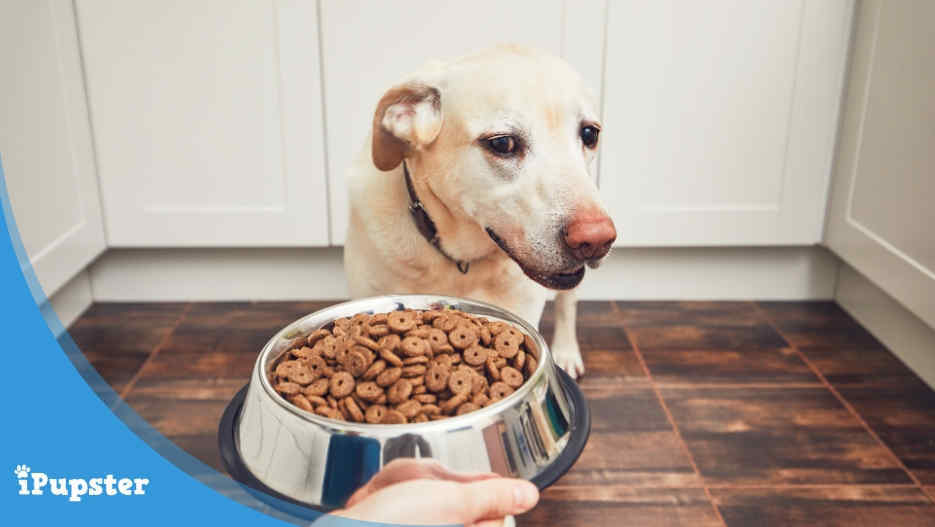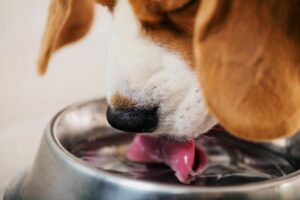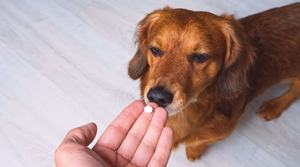
Reviewed & Fact-Checked by
Dr. Chyrle Bonk
Veterinarian (DVM)
Learn more about our Veterinary Review Board »
It's a given that dogs love to eat. No matter their age, as pet parents, we expect that our fur kids will always be eager when it's time to eat.
That's why it can be so distressing when your pet dog seems to lose his appetite and the food that used to get his tail wagging does not seem to excite him anymore.
Temporary loss of appetite in adult dogs for a day or two is nothing to be alarmed at. However, prolonged appetite loss is usually caused by an underlying health problem that should be checked by a veterinarian.
In this context, when we say 'loss of appetite' we mean any situation in which your pup starts eating less than he used to, or, in more extreme cases starts refusing to eat at all.
And while this is more common than you might think, there are lots of reasons why a dog might suddenly display a loss of appetite and not all of them have physical causes.
This quick guide will help you understand why your dog may not be eating and what you can do about it.
Loss Of Appetite In Dogs Symptoms

Watch out for signs of lethargy in an otherwise active dog
Signs of decreased appetite in your dog include:
- Loss of weight
- Loss of appetite (partial or complete)
- Sparse, coarse or dull hair coat
- Loss of muscle mass
- Refusing to drink water
- Lethargy, depression
- Showing signs of pain or discomfort
- Not eating treats
- Vomiting, retching, or diarrhea
- Fever (a temperature of more than 103 F is considered abnormally high)
What causes Appetite Loss in Dogs?
As we mentioned before, figuring out why your pup has lost his appetite can be very tricky. There are all kinds of reasons this might happen but this is the first step in solving appetite problems.
Behavioral Causes
Often the reasons that a dog may lose his appetite is related to his mental, rather than his physical state.
Dogs have more complex emotions and behaviors than many people give them credit for, although most long time dog owners are aware of that. When the balance of them is upset it can have an affect on their eating habits.
Here are just a few examples of the behavioral issues that may lead to a loss of appetite in dogs:
Stress
Dogs get stressed too, and this stress can lead to a decrease in appetite or for them to reuse to eat at all. A new home, new companions - fur or human - the loss of a companion or being left alone longer than usual can all be events that are very stressful for some dogs.
Some can also pick up on stress in the household in general, especially if there are disagreements going on around them.
Pickiness
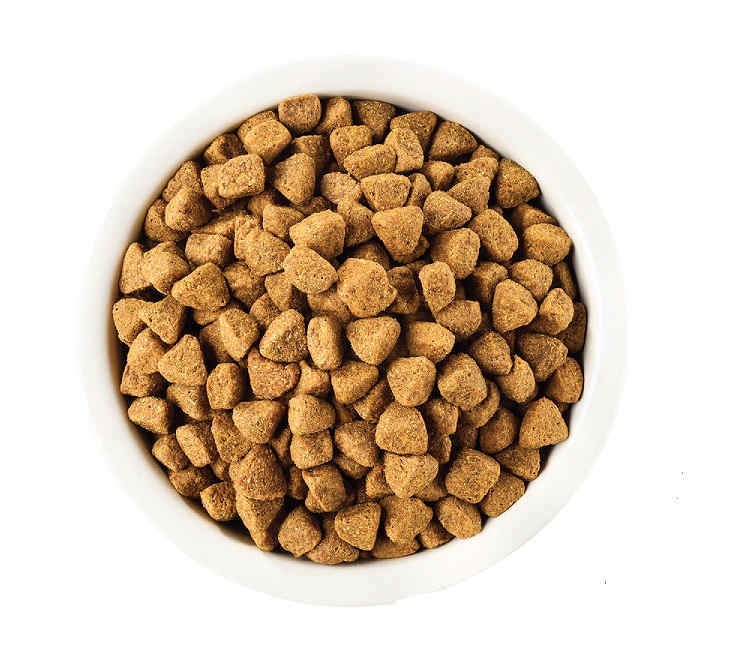
A change in their kibble may be one thing that can affect a dog's appetite
No dog is born picky about their food, but it is a behavior they can develop very quickly. Some finicky eaters get used to certain foods, especially higher fat foods and human foods.
Dogs who are fed scraps from the table are more likely to 'turn their nose up' at certain dog foods meant for them, hoping that something better - ie some of your dinner - will be along soon instead.
A dislike to a new food may cause your dog's reluctance to eat it.
Too many treats can cause this picky behavior as well.
Treats are meant to be just that, a treat. They shouldn’t take the place of a meal or make up more than 10% of their daily food intake. Most dogs, if given the choice, are going to pick treats over their regular diet every time. So, don’t give them the option of eating enough treats to power their day.
Food quality
People do assume that dogs will eat anything and not be too bothered about the quality, but that's often not true.
If the food they are being offered is rancid, they won't be keen to eat it (would you?) The same can be true of stale kibble or kibble that contains too many artificial flavors or coating that is designed to make the kibble look or taste like something else.
Physical Causes or Illnesses
Besides behavioral issues, there is a myriad of physical issues and illnesses that may cause a decrease in a dog’s diet.
Dental Disease
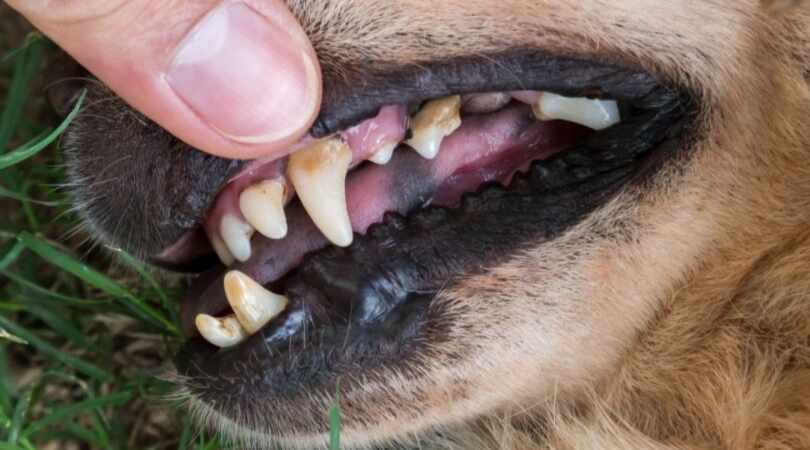 Dental issues in your dog may well be the reason for his loss of appetite
Dental issues in your dog may well be the reason for his loss of appetiteOne common physical reason a dog may seem to lose their appetite is that they are experiencing dental issues with their teeth or their gums, making eating painful.
Signs of dental problems in your dog include:
- Bad breath
- Drooling
- Difficulty chewing
- Redness, bleeding, or swollen gums
- Loss of appetite
- Weight loss
Important
If you notice any of these signs in your pup, have your vet check their teeth. Most often, dental disease can be fixed with a professional cleaning that may include extracting problem teeth.
Illness
Illnesses affecting nearly every part of a dog’s body can cause him to not want to eat. This includes digestive issues, liver, kidney, or heart trouble, cancer, and even skin problems.
These illnesses can be caused by viral, bacterial, or fungal infections, parasites, autoimmune diseases, eating something they shouldn’t have, or toxins.
Watch your dog for other signs of illness including:
- Fever
- Vomiting, diarrhea
- Weight loss
- Dehydration
- Pale or yellow gums
- Lethargy, exercise intolerance
Check in with your vet if your dog’s inappetence is accompanied by any other symptoms.
Injury
An injury that has caused pain or inflammation can also cause a decrease in appetite. When a dog doesn’t feel good or is uncomfortable, they might also stop eating.
Watch for any limping, swelling, redness, wounds, whining, or other signs that your dog may have an injury and then see your vet.
Other causes
Aging dogs may naturally have a reduced appetite simply because they aren’t as active and don’t need as much energy. They may have an underlying health condition that can be contributing as well.
New medications, vaccinations, supplements or deworming can all throw your dog’s appetite off. If they don’t return to normal within a couple of days, see your vet.
Season can also affect appetite. During the summer when the temperatures are hot, your dog may become less active and more lethargic and require less food since it won't need too much energy.
How To Get Your Dog To Eat
Most healthy dogs can go as long as 5 days without eating before any serious complications set in, however, it is advisable to address this problem as soon as possible.
Take Note
If a dog has decreased appetite for 48 hours, it is time to see your veterinarian for treatment. If you have a puppy, don't wait more than 24 hours.
When taking your dog to the vet because he seems to have lost his appetite, your vet will start with an exam. They may also do a blood panel, urinalysis, and even x-rays check-up to find the underlying cause and rule out any serious problems.
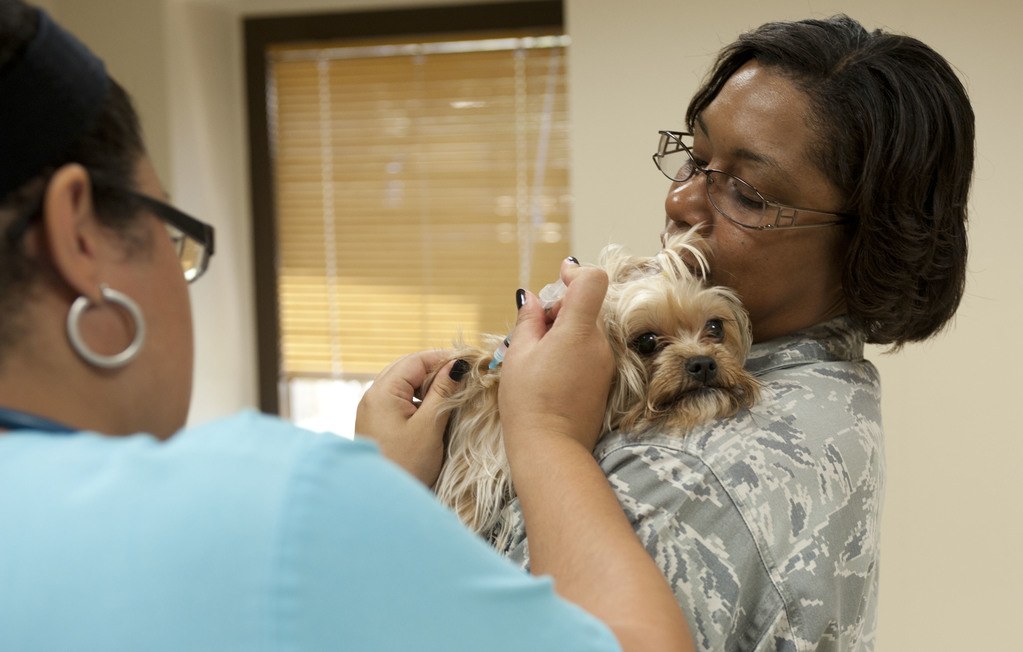
Seeing your vet at the first signs of a decrease in appetite in your dog is vital (U.S. Air Force photo by Airman 1st Class Clayton Lenhardt/Released)
If your pet dog is found to be in good shape physically, then it's likely that their lack of appetite is related to one of the behavioral issues we mentioned earlier.
Here are some things that are often very successful at solving behavioral issues that lead to a loss of appetite or refusal to eat certain foods in dogs.
Set Mealtimes
If pups are not fed according to a schedule, they are never quite sure when they might be getting their next meal and that can affect their eating habits.
Try to feed your pup on a regular schedule and don't leave food out for more than thirty minutes.
This will help pups learn that it's a take it or leave it situation, and many picky eaters will catch on to that fact very quickly and adjust their eating habits accordingly.
Cut Back on the Treats
Dog treats are not all bad. They can even be effective rewards to help develop positive behaviors, especially in younger dogs. However, they should be given sparingly.
Not only can they lead pups to refuse the food they should be eating but they can add too many calories to his diet, increasing the chances for obesity.
Go for Walks Before Meals
Try to arrange your pup's schedule - and yours of course - so that they can be given a walk before they eat. This will help them build up a better appetite and make them less likely to refuse to eat their food.
Gentle exercise in ageing dogs in particular is helpful in stimulating appetite.
The distance walked is not critical, but most old dogs should be taken out for at least 20 mins twice daily.
Consider a change in diet
Sometimes a change in flavor or texture is all your dog needs to get his appetite back. Fortunately, most major dog food brands offer different flavors for you to choose from.
To make kibble more palatable pour special canine gravy or food toppers over it to enhance food flavors. Just be sure to decrease the amount of kibble they are getting in order to not feed them too many calories.
In the case of a sick dog, cooked lean meat prepared with broth and rice can help coax him into eating.
You don't have to start cooking restaurant quality meals, just choose a high-quality food within your budget. Speak to your veterinarian for recommendations if you’re looking to change your dog’s food.
In the case of aging dogs, you may want to consider changing his diet to a food formulated for senior dogs. You can also, try mixing dry kibble with some wet food especially if he has sore gums.
If you suspect that your dog might have any health conditions, see your vet and use their recommendations on foods suited for their condition.
Why Has My Dog Suddenly Lost Her Appetite and What Can I Do
Aside from a physical ailment or an illness, other common causes of appetite loss include: stress, a change in their diet or environment, weather patterns and side-effects of a new medication, among many others.
A healthy dog generally devours his meals with gusto. Though loss of appetite is not always an indicator of illness, if your dog's appetite seems to be declining and hasn't eaten within a 48-hour period, it is time to see a veterinarian to rule out a serious medical problem.
For more information on why a puppy might refuse his food check out our post "Help! My Puppy Won't Eat (Reasons Why and Solutions!)!

